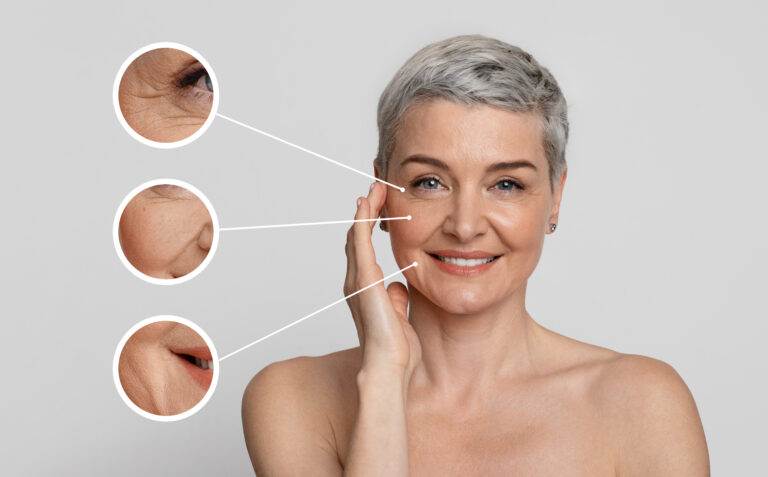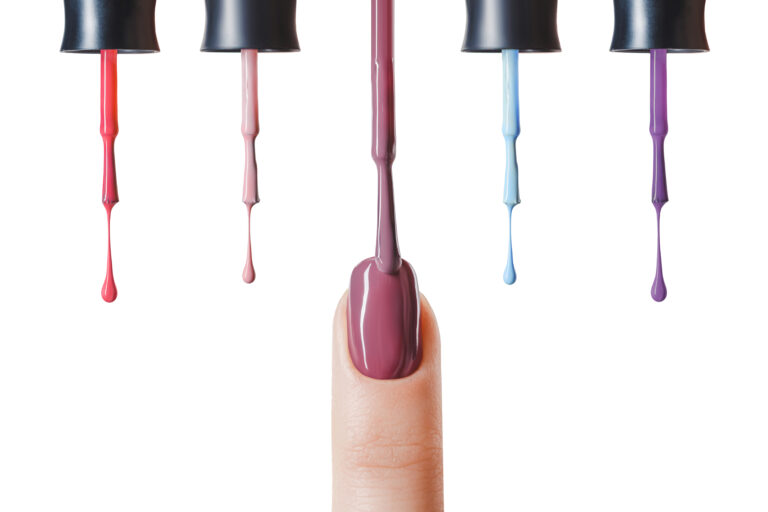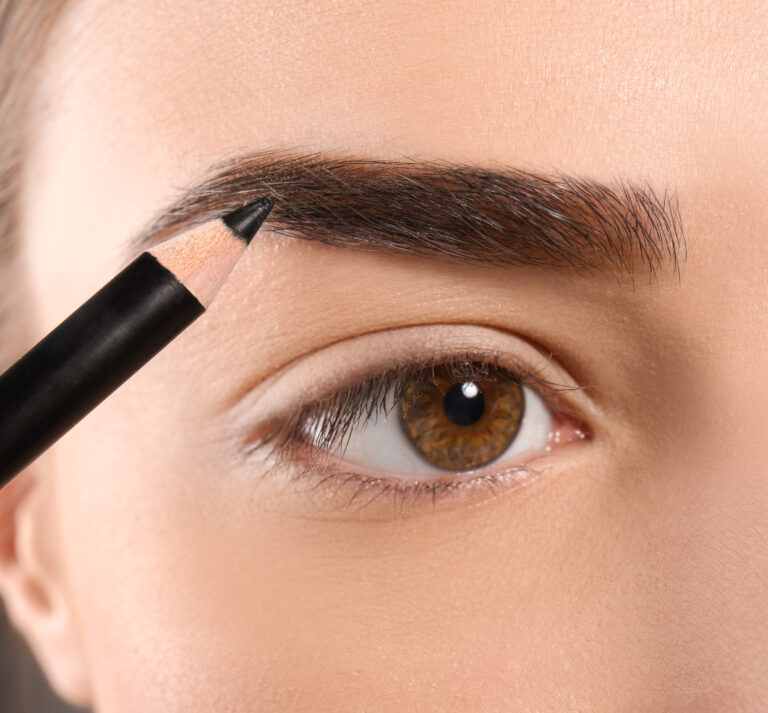
Disclosure: Some of the links in this post are affiliate links, meaning we may earn a small commission if you make a purchase through them.
This post is about non toxic glue for teeth.
Ensuring your dental health remains uncompromised involves discovering the adhesive that are non-toxic for teeth. It’s essential to prioritize safe alternatives when repairing broken dentures, prosthetics, or natural teeth.
At the forefront of these considerations is dental adhesive or glue. However, growing concerns about the toxicity of certain dental glues have sparked an increased demand for non-toxic alternatives. Denture adhesives, which are pastes, powders, or adhesive pads used to help dentures stay in place, are among these materials. Some of these adhesives contain zinc to enhance adhesion. However, excessive zinc intake can lead to health problems, including nerve damage. This post will review non toxic glue for teeth.
Non-Toxic Glue for Teeth
When discussing non-toxic adhesive options for dental care, we refer to dental adhesives specifically formulated for safe use within the oral cavity. These products are meticulously designed to minimize or eliminate harmful chemicals that could potentially be ingested or trigger adverse reactions within the body. The significance of opting for non-toxic adhesives in dentistry cannot be overstated, as it not only directly impacts our overall health but also significantly influences the effectiveness of various dental treatments, including procedures involving dental implants, addressing broken dentures, and preventing further damage.
Non-toxic dental adhesives are distinguished by composition, deliberately removing hazardous substances commonly found in conventional dental adhesives. These harmful elements may encompass solvents, formaldehyde, and other volatile organic compounds (VOCs), all carrying inherent risks to human health. Instead, non-toxic adhesives for dental applications utilize a thoughtfully curated blend of safe, often natural, ingredients. This approach ensures robust bonding capabilities without compromising safety, safeguarding dental health and overall well-being.
Ingredients to Avoid
Let’s examine some toxic substances commonly found in dental adhesives and their potential impact on the human body. It may be a good idea to consider avoiding these substances:
- Bisphenol A (BPA):
- What it is: Bisphenol A (BPA) is a chemical compound that produces polycarbonate plastics and epoxy resins. It’s commonly found in various consumer products, including dental materials like adhesives.
- Health risks: BPA is an endocrine disruptor that can interfere with the body’s hormonal system. Research suggests that exposure to BPA may contribute to various health issues, including hormonal imbalances, reproductive problems, developmental abnormalities, and increased risk of certain cancers. BPA can mimic the structure and function of estrogen in the body, potentially disrupting regular hormonal activity.
- Phthalates:
- What they are: Phthalates are a group of chemicals used to soften and increase the flexibility of plastics. They are commonly used in various products, including adhesives, fragrances, cosmetics, and medical devices.
- Health risks: Like BPA, phthalates are also known as endocrine disruptors. Exposure to phthalates has been linked to adverse effects on reproductive health, including decreased sperm quality, altered hormone levels, and developmental issues in children. Additionally, some studies suggest a potential association between phthalate exposure and an increased risk of certain health conditions like asthma, allergies, and metabolic disorders.
- Other endocrine disruptors:
- What they are: Endocrine disruptors can interfere with the body’s hormonal system, either by mimicking hormones, blocking hormone receptors, or altering hormone production and metabolism.
- Health risks: Besides BPA and phthalates, other compounds present in traditional dental adhesives may also act as endocrine disruptors. Prolonged exposure to these substances can disrupt hormonal balance, leading to a range of health issues such as infertility, thyroid disorders, metabolic disorders, and even neurological effects.
These harmful ingredients in dental adhesives raise concerns regarding their potential impact on human health. Consequently, there is an increasing demand for non-toxic alternatives that prioritize safety while maintaining optimal dental performance. Choosing non-toxic dental adhesives can assist individuals in reducing the risks associated with exposure to harmful chemicals, thereby fostering improved overall health and well-being. Additionally, opting for these alternatives can help mitigate the potential for allergic reactions, providing a safer option for individuals undergoing dental work.
The Role of the FDA in Regulating Dental Adhesives
The Food and Drug Administration (FDA) is crucial in safeguarding public health, particularly within the dental industry. Its oversight extends to various dental products, including adhesives used in dental procedures. The FDA regulates these products from restorative materials to implants to ensure they meet stringent safety and efficacy standards. For any dental adhesive to be marketed in the United States, it must be approved by FDA. This rigorous process helps guarantee that these adhesives are safe for dental procedures, reassuring patients and dental professionals alike.
Why Do People Need Dental Adhesives?
Broken Tooth: If you have a chipped or broken tooth, dental adhesives can temporarily hold the fragment in place until you receive professional dental treatment. They provide stability and prevent further damage while you wait for a permanent solution.
Denture Repair: Denture adhesives are commonly used for denture repair. If you have a broken denture or a piece has become loose or broke apart, applying adhesive can help hold them together until you can visit your dentist for proper repair.
False Teeth (Dentures): People who wear dentures may use adhesives to enhance stability. Properly fitted dentures may not require adhesive, but some prefer the extra security it provides. Adhesives prevent dentures from slipping when eating, speaking, or laughing.
Tooth Gems: Tooth gems are decorative crystals or tiny jewels applied often to the front tooth. Dental adhesives are used to attach these gems to the tooth surface. They allow for temporary embellishment without causing harm to the tooth enamel.
Root Canal Treatment: A temporary crown or filling may be placed over the treated tooth after a root canal procedure. Dental adhesives secure these temporary restorations until the permanent crown or filling is ready.
Reattaching Veneers: Dental veneers can occasionally become loose. Adhesives help reattach them until you can see your dentist for a more permanent solution.
What to Look for In Dental Adhesives
When purchasing an adhesive with no toxic substance for dental use, it’s crucial to consider several factors to ensure safety and effectiveness. Let’s break down what to look for:
1. Purpose and Application
Firstly, it’s essential to recognize that dental glue, also called dental cement or tooth crown glue, is a temporary solution for various dental issues such as chipped teeth, damaged veneers, and broken crowns. Over-the-counter dental glue provides very brief treatment until you can see a dentist. In urgent situations, these temporary solutions can help stabilize dental restorations.
2. Quantity and Original Packaging
The quantity of dental glue is also essential, as it typically comes in small amounts for specific applications. Look for products that provide just enough for your immediate needs to avoid waste.
3. Strength of the Bond
Additionally, the strength of the bond is a critical factor. Dental glue utilizes compression, sometimes forming a chemical bond with the tooth crown. The force exerted by the compressed dental glue holds the restoration in place. Opting for chemically bonded dental cement provides extra strength and durability, making it less likely to break down than glue that doesn’t form bonds. This is particularly beneficial for individuals who grind their teeth, as more vital dental cement provides additional crown stability.
4. Avoid Toxic Substances
Furthermore, it’s imperative to avoid using regular super glue or craft glue on your teeth, as these contain toxic substances not approved by the FDA for dental use. Only long-term dental-grade cement, bonding agents, acrylics, and resins designed explicitly for intraoral use should be used inside the mouth to ensure safety.
5. Seek Dental-Grade Products
When selecting a dental adhesive, seek products labeled as dental-grade or dentist-recommended. These formulations are specifically formulated for safe use within the oral cavity and should adhere well to dental restorations without compromising your health.
Safe Alternatives for Dental Use
The dental market now provides a range of safe alternatives for dental procedures, including denture adhesives crafted from non-toxic material.
Natural Ingredients in Dental Adhesives
Dental-grade resin adhesives are crucial in dentistry, especially for bonding restorations like fillings, crowns, and veneers to teeth. These adhesives are typically based on resin materials, which can be synthetic or derived from natural sources. Some formulations incorporate natural ingredients such as plant resins, gums, and essential oils. Dental adhesives are often enriched with components like rosin or gum arabic. No toxic substances make them safer and more eco-friendly than traditional dental glues. Moreover, certain dental resins possess antimicrobial properties, helping inhibit bacterial growth and reducing the risk of infections. However, individual sensitivities can vary, so it’s essential to consult a dentist for personalized recommendations. Dental-grade resin adhesives balance effectiveness, safety, and environmental consciousness in oral care.
Synthetic Alternatives for Dental Adhesion
Advanced synthetic compounds, engineered to meet stringent safety standards, offer another reliable option for dental adhesion. Subject to thorough testing to meet or exceed industry safety benchmarks, these compounds are hypoallergenic, making them suitable for individuals with sensitivities or allergies. Opting for these synthetic alternatives ensures dependable performance without compromising on health.
Biocompatible Materials in Dental Adhesives
Additionally, biocompatible materials play a pivotal role in modern dental adhesives. Tailored to integrate seamlessly with the body’s natural tissues, these materials minimize the risk of adverse reactions or sensitivities. They promote tissue healing and reduce the likelihood of inflammatory responses or tissue irritation, ensuring optimal outcomes for dental procedures while prioritizing patient comfort.
Understanding Dental Glue
Dental glue, also known as dental cement, specifically affixes dental implants or restorations to damaged teeth. While readily available over the counter for temporary treatment, newer formulations offer long-term solutions. Dental cements boast unique chemical properties that guarantee the secure placement of dental restorations. It’s crucial to differentiate dental glue from hot glue, as they serve distinct purposes and have different compositions.
Considerations for Non-Toxic Alternatives
When exploring non-toxic alternatives like octyl cyanoacrylate-based glues, it’s vital to acknowledge their suitability for dental use. While they address toxicity concerns and are utilized as wound closure adhesives, they may not be specifically designed for dental applications. However, despite their strong adhesive properties, super glues such as Gorilla Glue are inappropriate for dental applications due to their toxicity and lack of biocompatibility. These products can pose potential health risks, including irritation, inflammation, or damage to oral tissues. It’s important to note that numerous other types of glue should also be avoided for dental use due to similar concerns.
Super Poligrip Adhesive Cream
- Zinc-Free Formula: Unlike other denture adhesives, this product does not contain zinc. Zinc can be harmful if ingested in large quantities, so its absence makes this adhesive safer for use.
- No Artificial Colors or Flavors: The formula is free from artificial colors or flavors. This ensures you’re not introducing unnecessary chemicals into your system when using the adhesive.
- Strong All-Day Hold: Super Poligrip provides a solid 12-hour hold, allowing you to go about your day confidently. It effectively seals out food particles, even for well-fitting dentures with just a small amount.
- Low Price: Poligrip offers a 4 pack for a good price, making it a great value for your money.
Fixodent Ultra Max Hold Denture Adhesive
- Zinc-Free Formula: Fixodent Ultra Max Hold does not contain zinc. This is important because excessive zinc intake can be harmful.
- Gentle Ingredients: The formula is designed to be gentle on oral tissues. It doesn’t contain any toxic substances that could harm you.
- Strong All-Day Hold: Fixodent Ultra Max Hold provides a strong bond despite being non-toxic. You can confidently go about your day without worrying about denture movement.
Cushion Grip Thermoplastic Denture Adhesive
- Zinc-Free Formula: Fixodent Ultra Max Hold does not contain zinc.
- Gentle Ingredients: The formula is designed to be gentle on oral tissues. It doesn’t contain any toxic substances that could harm you.
- Strong All-Day Hold: Despite being non-toxic, Fixodent Ultra Max Hold provides an extra-long denture hold. You can confidently go about your day without worrying about denture movement you will have a secure fit.
- Helps Alleviate Gum Discomfort: The soft cushioning provided by the adhesive helps prevent denture irritation, offering greater comfort and reducing the likelihood of mouth sores. Additionally, it provides a protective barrier that can alleviate discomfort in gum tissue.
Side Effects and How to Manage Them
While non-toxic dental glues are formulated for safety, it’s essential to be aware of potential side effects that may occur, albeit rarely. Common mild reactions may include temporary irritation or sensitivity in the oral tissues. If you experience any discomfort after using non-toxic glue, it’s essential to discontinue its use immediately and rinse your mouth thoroughly with water. Applying a cold compress to the affected area can help alleviate swelling or discomfort. If symptoms persist or worsen, it’s advisable to seek advice from a dental professional for further evaluation and management. Understanding potential side effects and addressing them promptly can help ensure a positive experience with non-toxic dental adhesives while prioritizing your oral health and comfort.
Cleaning and Maintenance
Cleaning and maintenance are crucial to preserving dental health, especially for teeth treated with non toxic glue for teeth. Proper care ensures the longevity and safety of dental treatments, promoting overall oral health and preventing complications. Here are some recommendations for cleaning and maintaining glued teeth:
- Gentle Cleaning Techniques: When cleaning your teeth, especially around areas where dental restorations are glued, it’s best to use gentle techniques. Avoid vigorous brushing that could damage dental restorations or irritate the surrounding tissues. Opt for a soft-bristled toothbrush and non-abrasive toothpaste to prevent scratching or wearing down the adhesive bond.
- Avoidance of Harsh Products: Be cautious about using abrasive or acidic oral care products. These products may compromise the integrity of dental adhesives or damage tooth enamel. Avoid abrasive toothpaste, whitening products, and acidic beverages, as they can erode tooth structure and weaken adhesion.
- Regular Dental Check-ups: Don’t forget the importance of regular dental check-ups and cleanings. These appointments help monitor the condition of your glued teeth and allow dental professionals to address any issues promptly. Your dentist can assess the integrity of dental restorations, perform necessary repairs or adjustments, and offer additional guidance on proper cleaning and maintenance.
- Regular Oral Hygiene Practices: Sticking to a consistent oral hygiene routine is essential. Ensure you brush your teeth twice daily with fluoride toothpaste, and remember to floss between your teeth daily. This routine helps remove plaque and food particles, preventing bacteria buildup leading to dental decay and gum disease.
Frequently Asked Questions
Is non-toxic glue safe for dental use? Yes, non-toxic dental glue is formulated to be safe for dental procedures, prioritizing patient health and well-being.
How do I know if a dental adhesive is non-toxic? Look for FDA-approved or cleared products as they undergo rigorous testing to meet safety and efficacy standards. Additionally, consider seeking recommendations from dental professionals.
Are there any potential side effects of using non-toxic dental glue? While rare, some users may experience mild reactions such as temporary irritation or sensitivity. However, these effects are typically minimal and easily managed.
Can I use non-toxic dental glue at home? Absolutely! Non-toxic dental glue, or dental cement, secures dental implants or restorations (like crowns, bridges, or veneers) for damaged teeth. Although specific over-the-counter options offer temporary relief, newer products are designed for longer-term use. Nevertheless, it’s crucial to seek personalized guidance from a dentist. In situations involving a broken tooth or urgent dental restorations, dental glue offers a dependable and effective solution, eliminating the need for craft glue.
How do I clean and maintain teeth treated with non-toxic glue? Follow regular oral hygiene practices, including brushing teeth twice daily with fluoride toothpaste and flossing daily. Avoid abrasive or acidic oral care products that may compromise the adhesive bond, and schedule regular dental check-ups for monitoring and maintenance.
Where can I find free consultation about my dental needs? Before seeking a consultation, it’s advisable to inquire with your dentist’s office. You may also explore the Dental Lifeline Network (DLN) for free consultations, provided you meet the eligibility criteria. DLN is a national charitable organization committed to enhancing the oral health of specific populations. Established in 1975, DLN has been making a significant impact through its nationwide network of volunteer dentists and laboratories.
This post was about non toxic glue for teeth.

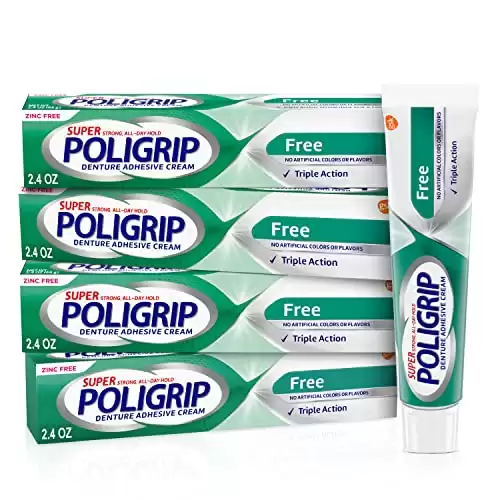
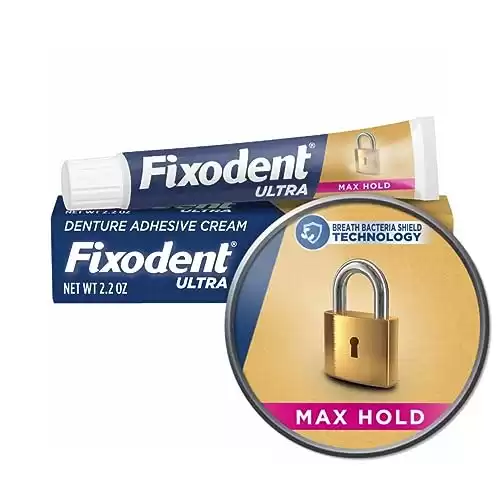
![Cushion Grip Thermoplastic Denture Adhesive for Refitting and Tightening Loose Dentures [Not a Glue Adhesive, Acts Like a Soft Reliner] (1 Oz) Hold Dentures for Up to 4 Days.](https://thrivingsustainably.com/wp-content/uploads/2025/01/417lMMk2v-L._SL500_.webp)



